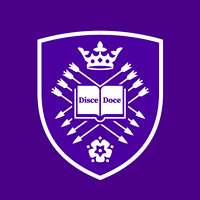fees waived
English Language and Linguistics, BA (Hons)
The University of Sheffield, United Kingdom
Subject ranking
UK / Times 2025 6th
UK / QS 2025 12th
UK / THE 2025 12th
Costs
food & rentS$17.1K / year
Entry requirements
Scholarships
More than 50 available
More than 50 available
Unlimited quantity
Unlimited quantity
Limited quantity
Information
Code
Code
Intakes
Website (External)
Programmes
Information
Duration
2028
Course summary
The single honours English Language and Linguistics degree gives you a solid foundation in the study of language and linguistics, and trains you in how to apply key concepts and techniques to the many real-life contexts in which language is used.Change how you see the world through the study of language and linguistics – applying your knowledge of how languages work, how they are stored in speakers' minds, and how we make use of them.From a foundation of linguistic concepts – speech sounds, grammatical structures, variation and history – you can take this degree wherever your interest flows.Choosing from topics such as first and second language acquisition, theoretical linguistics, language and gender, accents and dialects, the history of English, and language and literature, you’ll have the opportunity to specialise and either pursue a one-term research project or year-long dissertation.You will acquire digital skills that help to analyse language and linguistic data, with opportunities to use specialist software to analyse speech, map regional language variation, and work with numerical data. Because language is used in every facet of human life, English Language and Linguistics can contribute to every other field of study, and leads to many career options.Why study this course?
- Learn with some of the best - we’re 4th in the UK for Linguistics (The Complete University Guide 2023).
- Enjoy choice and flexibility - we have close contacts with linguistics specialists in other departments, particularly the School of Languages and Cultures, and you can choose to do a dual degree in Linguistics and Modern Languages & Cultures, or with Japanese Studies, Philosophy, History, or Music.
- A variety of challenges - we’ll stimulate learning and creativity, supporting diverse students and encouraging professional development by using a variety of assessment methods – from creating posters and presentations to reflective work, and applied problem-solving.
- Develop the confidence and skills for employment - work placements in local and national companies can enhance your learning. Our graduates use their excellent research and communication skills in areas as diverse as business, the civil service, the charity sector, policy development, and speech and language therapy.
A local representative of The University of Sheffield in Singapore is available online to assist you with enquiries about this course.

